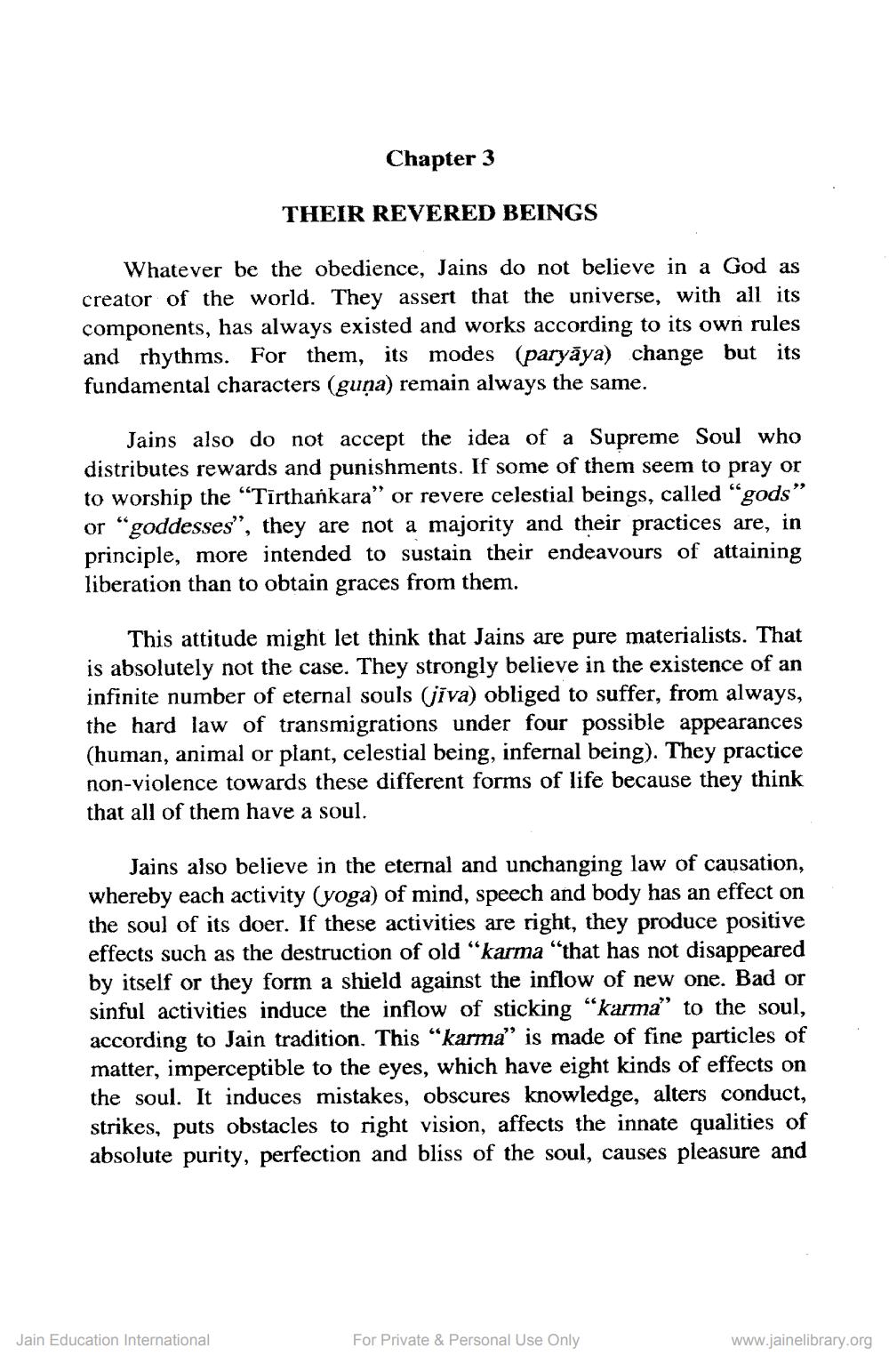________________
Chapter 3
THEIR REVERED BEINGS
Whatever be the obedience, Jains do not believe in a God as creator of the world. They assert that the universe, with all its components, has always existed and works according to its own rules and rhythms. For them, its modes (paryāya) change but its fundamental characters (guna) remain always the same.
Jains also do not accept the idea of a Supreme Soul who distributes rewards and punishments. If some of them seem to pray or to worship the “Tīrthankara" or revere celestial beings, called "gods" or "goddesses”, they are not a majority and their practices are, in principle, more intended to sustain their endeavours of attaining liberation than to obtain graces from them.
This attitude might let think that Jains are pure materialists. That is absolutely not the case. They strongly believe in the existence of an infinite number of eternal souls (jiva) obliged to suffer, from always, the hard law of transmigrations under four possible appearances (human, animal or plant, celestial being, infernal being). They practice non-violence towards these different forms of life because they think that all of them have a soul.
Jains also believe in the eternal and unchanging law of causation, whereby each activity (yoga) of mind, speech and body has an effect on the soul of its doer. If these activities are right, they produce positive effects such as the destruction of old “karma "that has not disappeared by itself or they form a shield against the inflow of new one. Bad or sinful activities induce the inflow of sticking “karma” to the soul, according to Jain tradition. This “karma” is made of fine particles of matter, imperceptible to the eyes, which have eight kinds of effects on the soul. It induces mistakes, obscures knowledge, alters conduct, strikes, puts obstacles to right vision, affects the innate qualities of absolute purity, perfection and bliss of the soul, causes pleasure and
Jain Education International
For Private & Personal Use Only
www.jainelibrary.org




